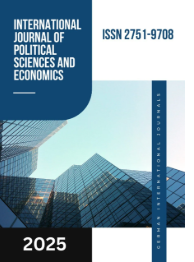EFFICACY OF ANTIBIOTICS IN THE TREATMENT OF INTESTINAL INFECTIONS AND THE RISING ANTIBIOTIC RESISTANCE
DOI:
https://doi.org/10.55640/Keywords:
Intestinal infections, antibiotic efficacy, antimicrobial resistance, treatment challenges.Abstract
Intestinal infections remain a global health burden, significantly impacting both developed and developing countries. Antibiotics have long been the cornerstone of treatment for bacterial causes of these infections. However, the increasing prevalence of antibiotic resistance has emerged as a major public health threat, complicating treatment and contributing to higher morbidity and mortality rates. This article reviews the current state of antibiotic efficacy in treating intestinal infections, focusing on resistance trends, treatment outcomes, and emerging challenges. A comprehensive literature analysis was conducted, and data from various clinical studies were synthesized to provide an in-depth overview. The findings highlight the urgent need for stewardship programs and alternative therapeutic approaches to mitigate resistance development and preserve antibiotic efficacy.
References
1.World Health Organization. (2019). Global burden of diarrhoeal diseases. WHO.
2.Kotloff, K. L., et al. (2018). Shigellosis. The Lancet, 391(10122), 801–812. [https://doi.org/10.1016/S0140-6736(17)33296-8]
3.O’Neill, J. (2016). Tackling drug-resistant infections globally: final report and recommendations. Review on Antimicrobial Resistance.
4.WHO. (2020). Antimicrobial resistance. [https://www.who.int/news-room/fact-sheets/detail/antimicrobial-resistance]
5.Davies, J., & Davies, D. (2010). Origins and evolution of antibiotic resistance. Microbiology and Molecular Biology Reviews, 74(3), 417–433. [https://doi.org/10.1128/MMBR.00016-10]
6.Nair, G. B., & Ramamurthy, T. (2007). Emerging trends in Vibrio cholerae and Vibrio parahaemolyticus research. Indian Journal of Medical Research, 126(2), 115–118.
7.Bakhodirovna, M. D., & Taxirovich, A. S. (2024). CHARACTERISTICS OF RHINOVIRUS INFECTION. International journal of medical sciences, 4(08), 55-59.
8.Akhatovna, M. K. (2023). BENEFITS OF COMPLETE TREATMENT OF INFECTIOUS DIARRHEA IN YOUNG CHILDREN. Ethiopian International Journal of Multidisciplinary Research, 10(10), 115-117.
9.Mulladjanova, K. A. (2022). PATHOGENETIC APPROACH TO THE TREATMENT OF INFECTIOUS DIARRHEA IN CHILDREN. Экономика и социум, (8 (99)), 42-45.
10.Laxminarayan, R., et al. (2013). Antibiotic resistance—the need for global solutions. The Lancet Infectious Diseases, 13(12), 1057–1098.
11.Nikolaevna, S. O. (2024). ETIOLOGY, PATHOGENESIS AND TREATMENT OF MRSA INFECTION. Ethiopian International Journal of Multidisciplinary Research, 11(10), 119-123.
12.Dyar, O. J., et al. (2017). Strategies and challenges of antimicrobial stewardship in hospitals. Clinical Microbiology and Infection, 23(10), 713–722.
13.O’Neill, J. (2016). Rapid diagnostics: Stopping unnecessary use of antibiotics. Review on Antimicrobial Resistance.
14.Lin, D. M., et al. (2017). Phage therapy: An alternative to antibiotics in the age of multi-drug resistance. World Journal of Gastrointestinal Pharmacology and Therapeutics, 8(3), 162–173.
Downloads
Published
Issue
Section
License

This work is licensed under a Creative Commons Attribution 4.0 International License.
Authors retain the copyright of their manuscripts, and all Open Access articles are disseminated under the terms of the Creative Commons Attribution License 4.0 (CC-BY), which licenses unrestricted use, distribution, and reproduction in any medium, provided that the original work is appropriately cited. The use of general descriptive names, trade names, trademarks, and so forth in this publication, even if not specifically identified, does not imply that these names are not protected by the relevant laws and regulations.







